We’re excited to introduce you to the always interesting and insightful May (Tianyang) Yu. We hope you’ll enjoy our conversation with May (Tianyang) below.
May (Tianyang), thanks for joining us, excited to have you contributing your stories and insights. Can you open up about a risk you’ve taken – what it was like taking that risk, why you took the risk and how it turned out?
One of the biggest risks I’ve taken was pivoting from a full-time classical performance path to a Music Business master’s program at NYU. On paper, it might not seem like a huge leap, since I’m still in music, but it meant a complete shift of both perspective and my role in the industry.
I had just finished my Master’s in Violin Performance at the Manhattan School of Music and was performing, freelancing, and teaching in New York. I had spent over two decades refining my playing, during which I trained at conservatories and built my identity around performing at a high level. However, I started noticing deeper problems in the music industry itself — ones that no amount of practicing would fix. Through collaborating with artists from different genres and backgrounds, I saw firsthand how much talent never gets heard, how many artists struggle to get fair compensation, and had many of my friends leave the industry due to feeling “lost”.
Seeing my peers’ and colleagues’ negative experiences made me question my role in the industry. What if I could do more than just perform? What if I could help change things from the inside? Asking myself these questions led me to go back to school as an international student in an entirely new field. I was excited to learn the tools to support artists holistically — as both a violinist and savvy businesswoman with contracts, publishing, data, sync, and strategy.
Since then, I’ve worked with Anti Social Camp (the largest songwriting camp in the world), helped organize summits and industry events, continued performing with my friends at bars and small venues, and taught students of all ages. I’m also part of DIT (Do-It-Together), a global music community where we host free, accessible speaker panels and are currently planning Indie Week, a conference focused on empowering independent artists. At NYU, I serve as Co-President of the Graduate Music Business program, where I advocate for more opportunities for international students and create events that connect not only our classmates, but also artists, professionals, and creatives across the wider New York music scene.
I didn’t lose my identity as an artist, I expanded it. I still perform, but I also teach, advocate, and use my music business expertise to support other creatives. Shifting to this side of the industry has given me new tools, new perspectives, and a deeper sense of purpose in the work I do.
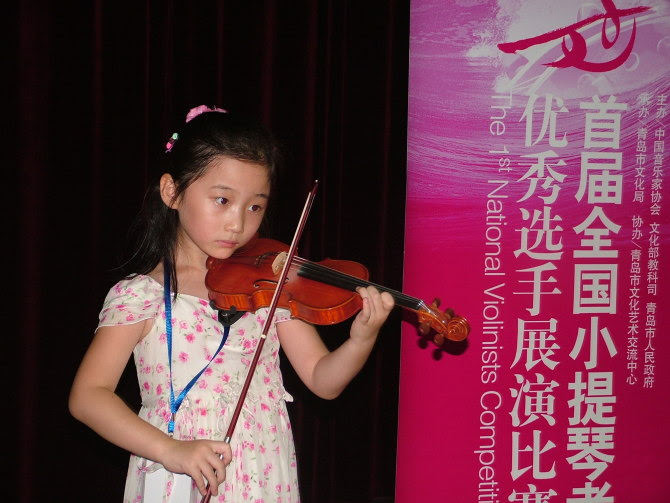

Great, appreciate you sharing that with us. Before we ask you to share more of your insights, can you take a moment to introduce yourself and how you got to where you are today to our readers.
Hi!!! I’m May, a Chinese-Canadian classical and jazz violinist, educator, and music business graduate student based in New York. Versatility is one of my strengths, as I am both a performer and educator, classical and jazz musician, artist and business student. And, as an immigrant and creative, I’ve learned to adapt, listen closely, and stay open to different ways of thinking and creating.
My musical journey began at three in Harbin, China, leading me through classical conservatory at the University of Toronto and Manhattan School of Music, where I also developed my leadership abilities as a concertmaster. My curiosity then led me to explore jazz, improvisation, music therapy, and now, the business behind the music.
My undergraduate years were also marked by strong leadership and management skills developed in the non-profit sector. As VP of Communications at Music To Connect, I recruited musicians for senior care homes and boosted web engagement. Subsequently, I was headhunted as VP Operations/Mentor Coordinator at Send It On, where I led teams, oversaw program operations and mentorship programs for students in Uganda, and helped organize a fundraiser to equip a Ugandan school with computers.
Beyond my non-profit work, research is a strong passion. I love connecting music with overlooked phenomena, which led to publishing my first journal article, “The Mental Health Benefits of Improvisational Music Therapy for Young Adults” with Dr. Amy in the Canadian Music Educators Journal during my third year of undergraduate degree. My research paper: “Treating like candy? – the Effect of Beta-blockers on Performance Anxiety in Classical Musicians” was also selected to participate at the University of Toronto Undergraduate Research Showcase and nominated for the Libraries’ Patricia and Peter Shannon Wilson Undergraduate Research Prize.
I’m now pursuing a master’s in Music Business at NYU, where I also serve as the Co-President of the Graduate Music Business program and work as a TA. I’ve had the chance to intern with Anti Social Camp, contributing to educational summits and event production. I also perform in NYC, including solo engagements at Dizzy’s Jazz Club and the Apollo Theater, and as the lead violinist for my jazz-folk fusion band, American Decay, which blends folk, jazz, and experimental sounds.
What sets me apart is my holistic approach to both music and the industry around it. As a performer, scholar, business student, and educator, I bring a wide range of lived experiences to the table. I understand the creative side deeply, and I am learning how to navigate the systems that shape it— from publishing and sync to contracts and royalties. I’ve seen how vulnerable even very talented artists can be, and my goal is to use my knowledge to support others through the process.
When I reflect on what I’m most proud of, it isn’t a single accomplishment, but the incredible web of connections and opportunities that has grown from staying open and curious. That openness is what led me to publish research on music therapy, which connected me with a community focused on wellness. It led me to the legendary stages of Dizzy’s Club and the Apollo Theater, but just as importantly, it led me to play in my friends’ gigs and to perform virtually for seniors to combat isolation during the pandemic. Each experience—whether it was mentoring others or diving into the music business program at NYU—was a step that deepened my connection to the community. I’m incredibly happy and grateful for where this path has taken me, and I’m excited to continue the journey.
Whether I’m performing, teaching, or working behind the scenes, I hope people see that I care deeply about my work and that my diverse experiences make me especially equipped to handle challenges.
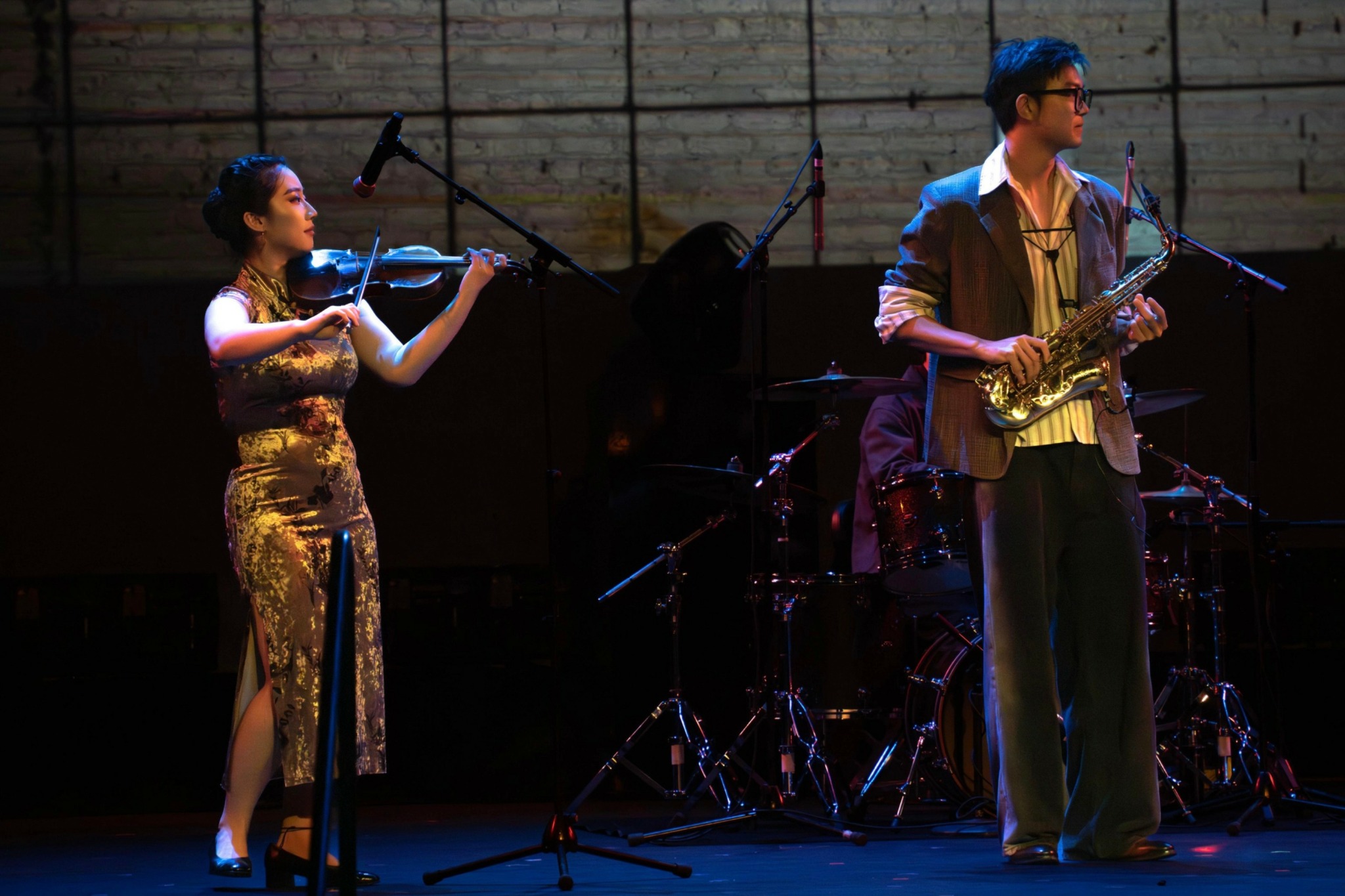
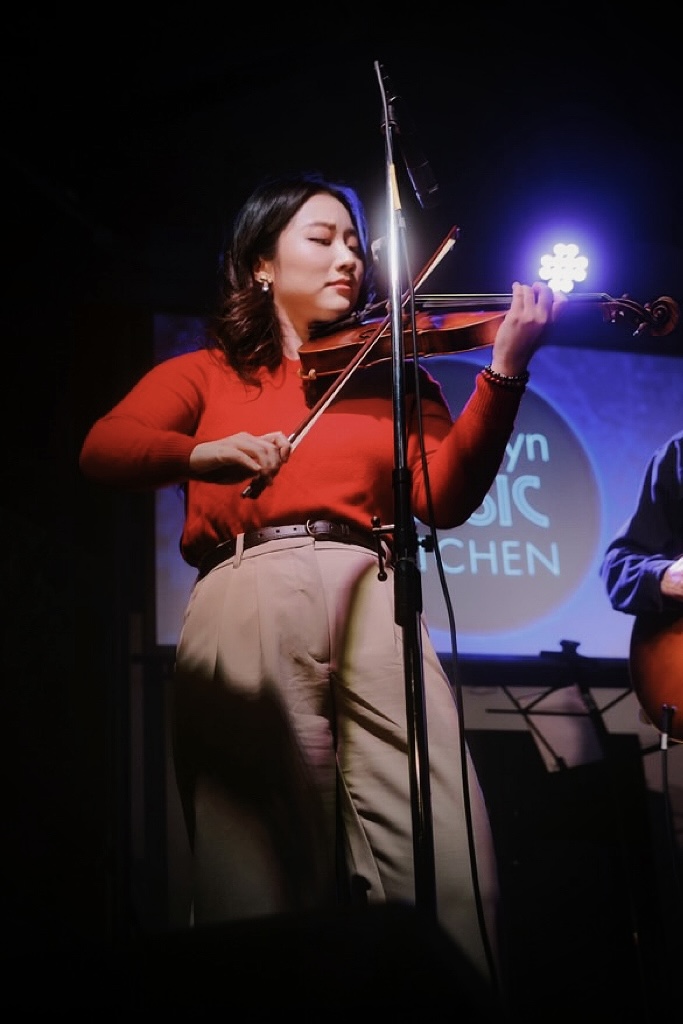
Is there a particular goal or mission driving your creative journey?
My creative journey has always been about building real connections through music, education, and community. For me, the music has to serve a purpose beyond the stage. My focus is on how it connects people, and how we can build a more professional, supportive structure for artists to sustain their careers.
A big part of what drives me is the people I’ve met along the way. My work is often inspired by others who’ve sparked something in me through deep conversations, collaborations, or even just witnessing them fully own their voice. That inspiration is what gave me the courage to explore jazz after years of classical training, a path that has led me to perform on some of New York’s most revered stages, from a solo at Dizzy’s Club at Jazz at Lincoln Center to the iconic Apollo Theater. That same drive led me to go deeper academically and author an article for the Canadian Educators Journal on the tangible benefits of improvisational music therapy for mental health. It also pushed me to dive into the music business not just as a student, but as a leader—at NYU, alongside my master’s studies, I serve as the elected Co-President of the graduate program and as a Teaching Assistant, so I can be more useful to the communities I care about.
Ultimately, it all comes down to a simple belief that meaningful work starts with meaningful relationships. My experiences have taught me to lead with empathy and a genuine interest in people’s stories, their struggles, and their potential. I value collaboration, honesty, and continuous growth, because I believe real change happens when creativity meets care.
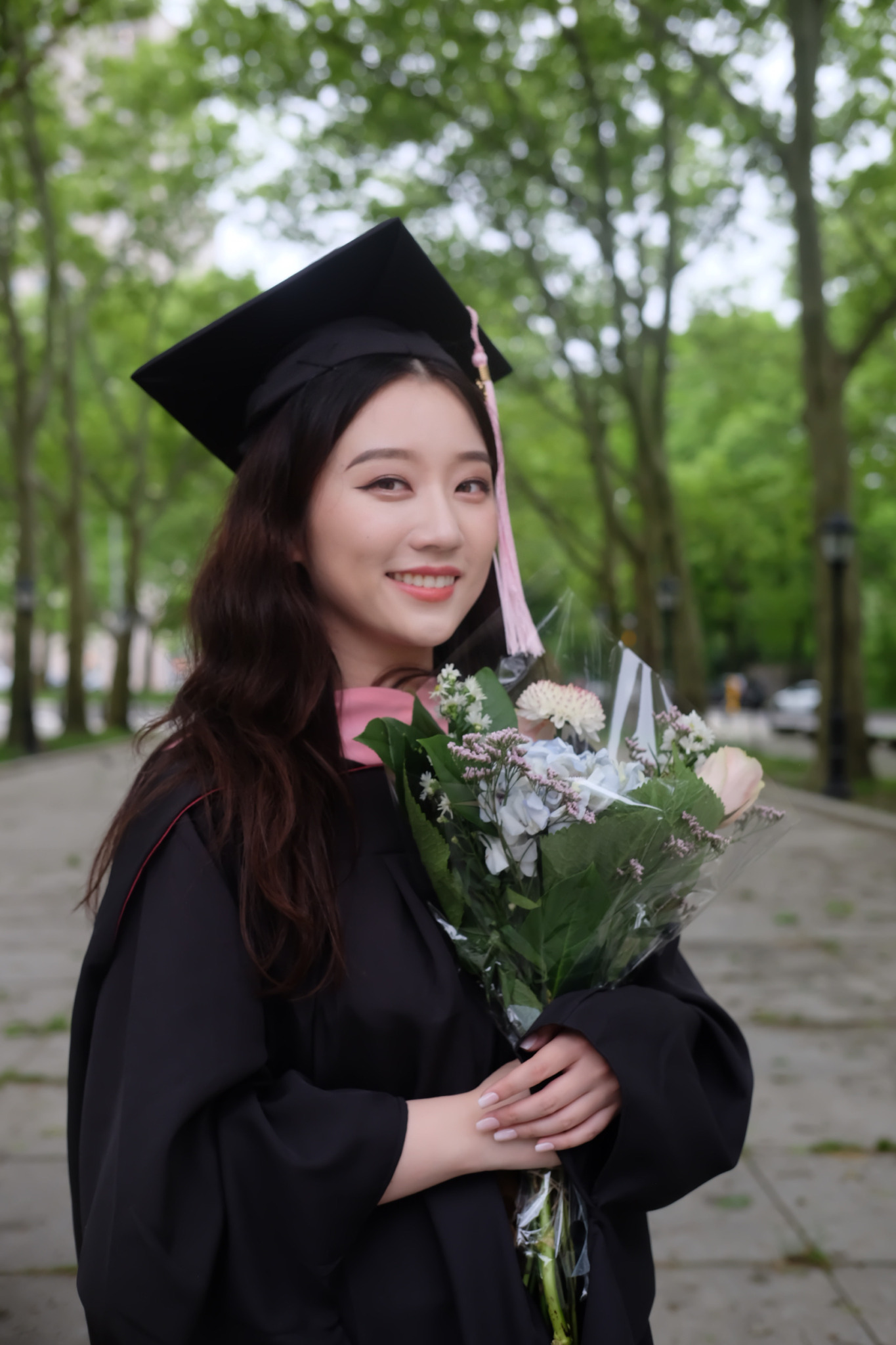
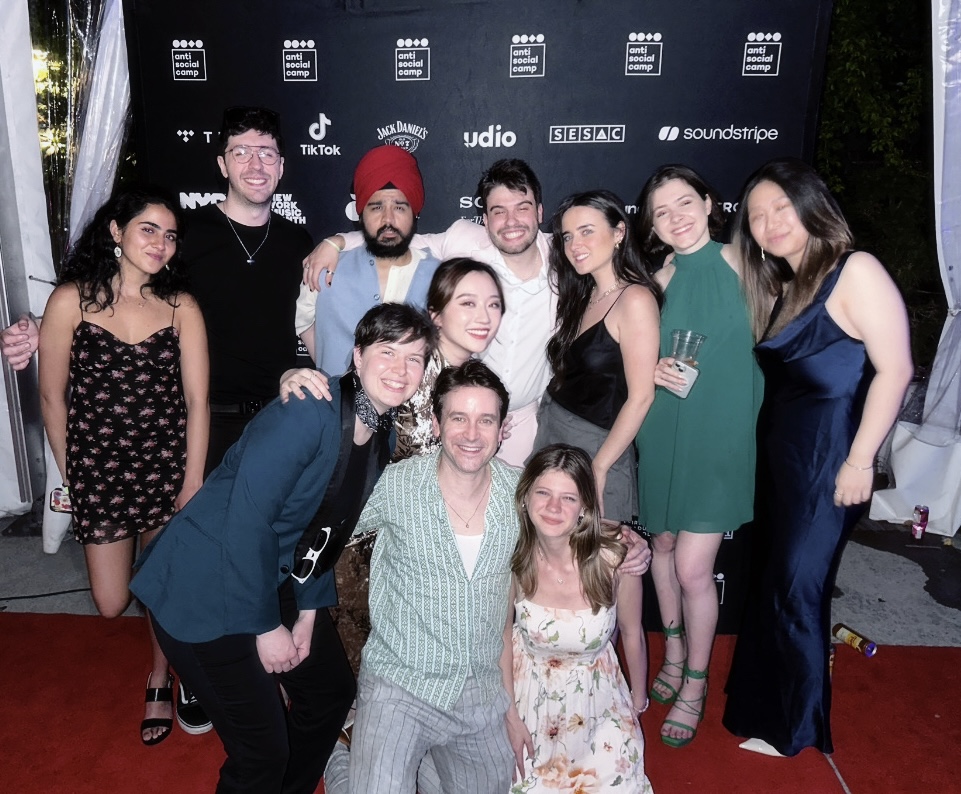
What can society do to ensure an environment that’s helpful to artists and creatives?
To build a thriving creative ecosystem, society can support artists by equipping them with the tools they need to succeed independently. It boils down to two things: access and advocacy.
First, access to knowledge. Too many creatives, especially emerging ones, are left to figure out the business side of the industry on their own. By the time they realize what they don’t know about publishing, royalties, or contracts, it’s often too late. To fix this, we need open, community-driven resources like mentorship programs, transparent platforms, and workshops led by people who are actually active in the industry. An artist’s success should be determined by their talent, not by their ability to decipher a 30-page contract.
Second, a culture of advocacy. This goes both ways. As a society, we need to advocate with our wallets: buy the merch, attend the show, and directly fund the creators who enrich our lives. And as artists, we must advocate for ourselves and each other by building real, meaningful relationships. Not everything needs to be transactional; the most important connections I’ve made came from genuine curiosity and mutual respect, not just networking for the sake of it.
Ultimately, we must also overhaul the outdated policies that fail to protect creators.
Building a better ecosystem means prioritizing education, access, and care. It all comes down to equipping artists with the business knowledge they need and adjusting the systems in place to be safer. That way, artists can focus on what they do best: creating art.
Contact Info:
- Website: https://mayyuvln.wixsite.com/music
- Instagram: https://www.instagram.com/mayyyyyu_/
- Linkedin: https://linkedin.com/in/mayyumusic
- Youtube: https://www.youtube.com/@mayyu7358
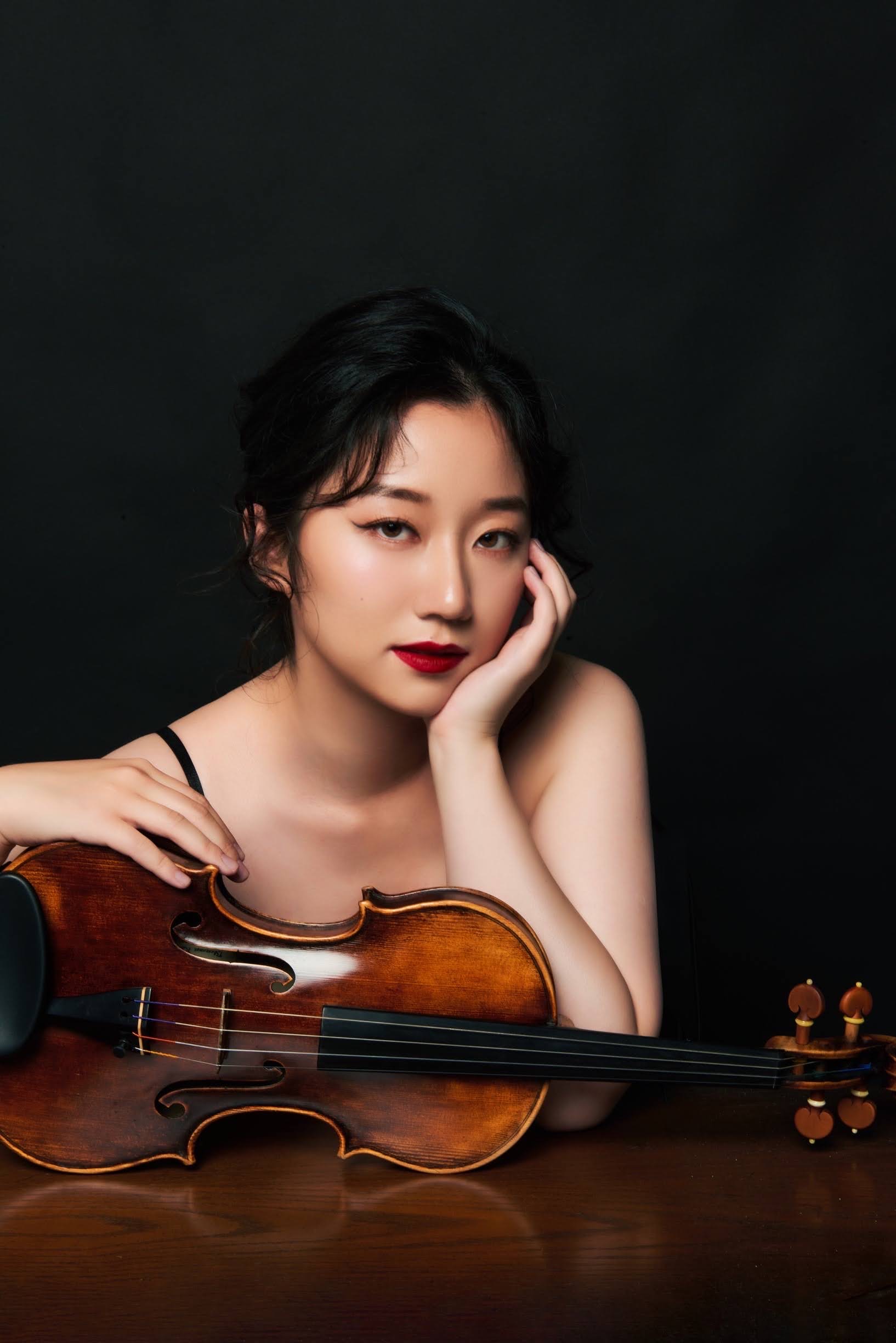
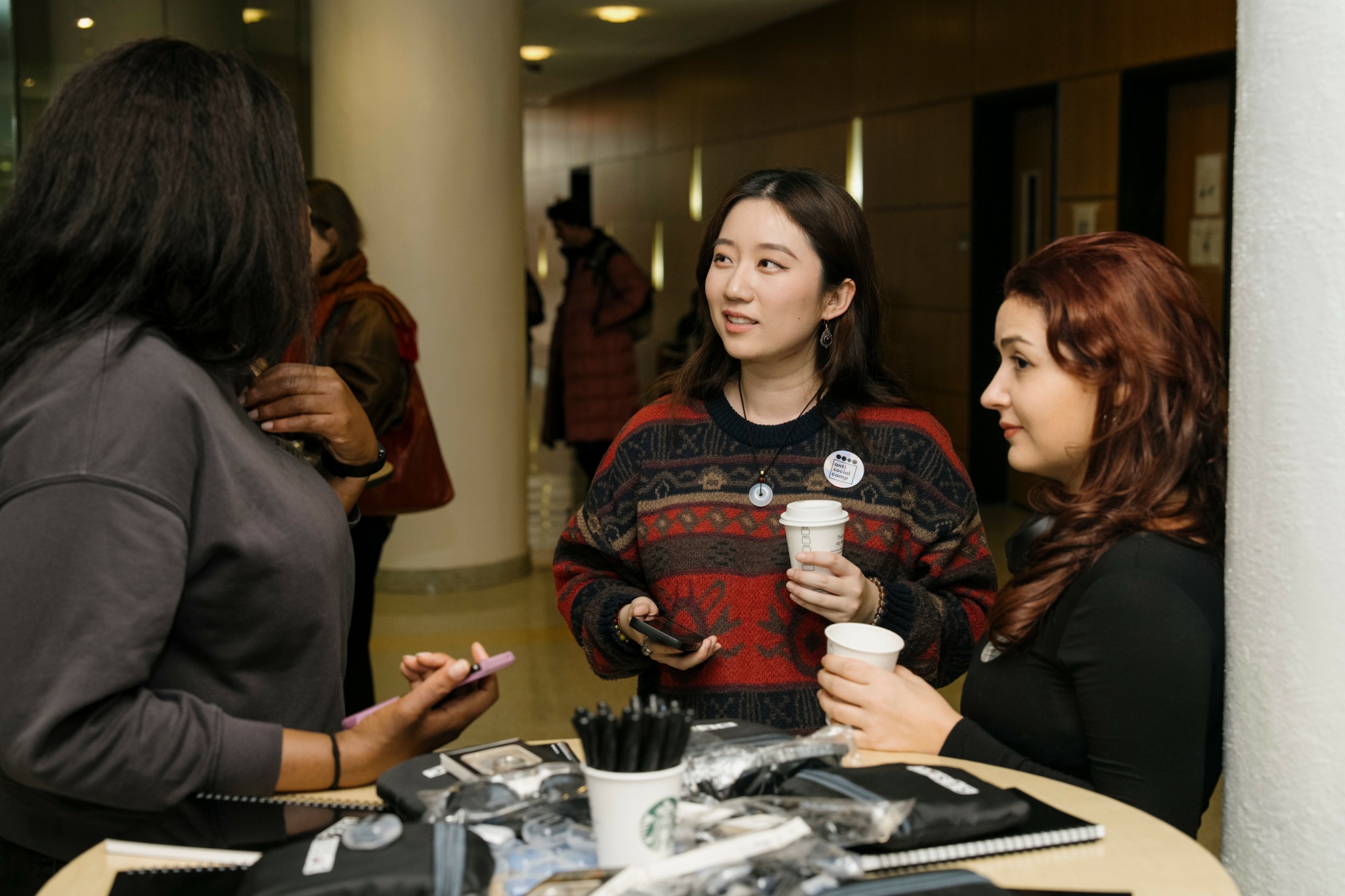
Image Credits
Jenny Qian, Daniel Stewart, Ariel Li, Scott Heins, Anna Yatskevich


